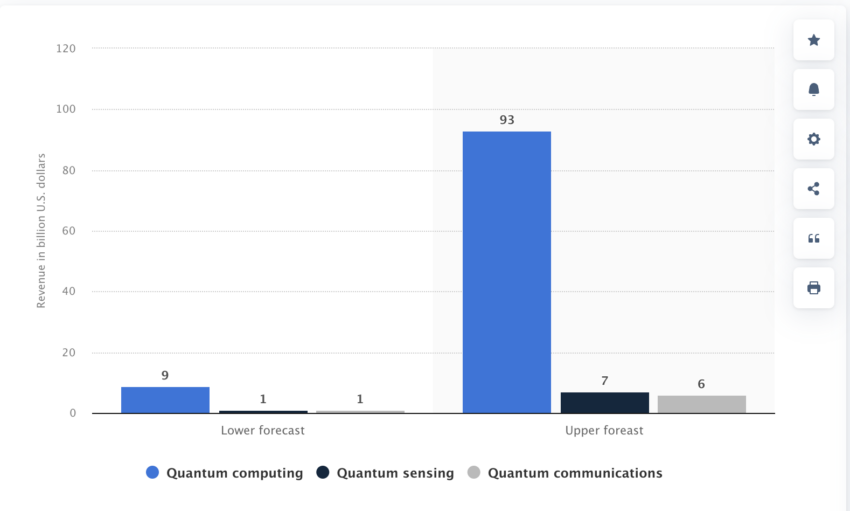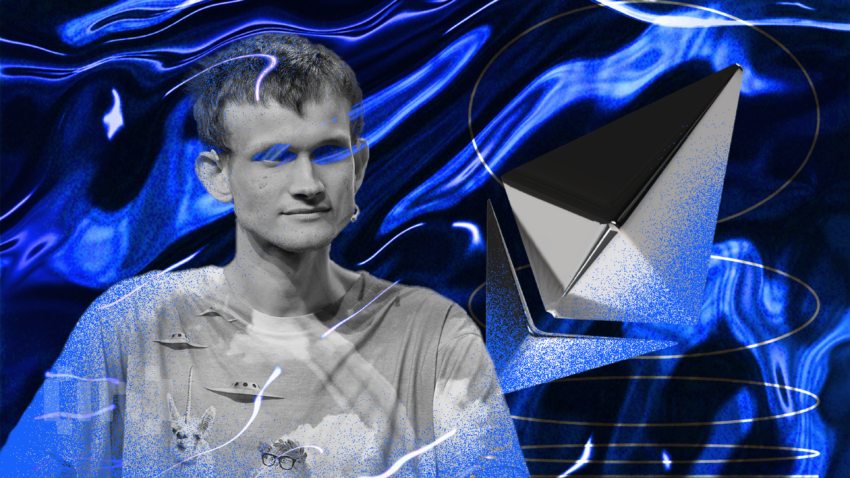Vitalik Buterin, Ethereum’s co-founder, has unveiled a detailed plan to safeguard the blockchain against quantum threats. Recognizing the potential for quantum computers to breach traditional cryptographic defenses, Buterin proposes a blend of quantum-resistant cryptography and strategic preparedness.
This plan aims to shield Ethereum and its users’ assets from quantum vulnerabilities.
What is Vitalik Buterin’s Defense Strategy Against Quantum Attack?
Central to Ethereum’s defense strategy is adopting quantum-resistant cryptographic methods, like Winternitz signatures and the zero-knowledge proof technology – STARKs. Buterin plans to integrate these technologies through account abstraction. This approach empowers users to migrate to quantum-safe schemes at their own pace, ensuring a seamless transition.
However, Buterin also warns of the risks of a sudden quantum leap. To counter this, he suggests a “simple recovery fork” to protect users’ funds in case of an unforeseen quantum advancement.
Ethereum’s vulnerability to quantum computing arises from its reliance on elliptic curve multiplication for generating addresses. This process is potentially reversible by quantum computers. Nonetheless, Buterin points out that most Ethereum keys, produced through hash calculations or similar to BIP-32 methods, naturally resist quantum attacks due to the irreversible nature of hashing.
Building on this insight, he proposes an Ethereum Improvement Proposal (EIP) for a hard fork designed to fortify the network against quantum dangers. This EIP encompasses disabling traditional transactions, incorporating smart contract wallets, and enabling STARK proofs to enhance security and gas efficiency.
“The infrastructure to implement a hard fork like this could, in principle start to be built tomorrow, making the Ethereum ecosystem maximally ready in case a quantum emergency does actually come to pass,” Buterin stated.
Read more: Ethereum EIPs: What Are They? How Are They Implemented?

A Threat to Bitcoin Blockchain?
Amidst the cryptographic community’s debates, claims by Chinese researchers about cracking RSA encryption with quantum technology have raised alarms. However, the SHA256 algorithm, crucial to Bitcoin’s security, remains secure against quantum threats.
This distinction between encryption and hashing functions sheds light on the nuanced battlefield of quantum cryptography, where advancements in quantum computing do not necessarily equate to immediate vulnerabilities in blockchain technologies.
Nonetheless, the race towards quantum computing is gaining momentum, highlighted by IBM’s roadmap towards more powerful quantum computers and the emergence of other key players. While the direct impact on blockchain encryption is still speculative, the evolving quantum ecosystem necessitates preemptive and robust cryptographic defenses.

The broader implications of quantum computing extend beyond blockchain security, significantly impacting the arena of artificial intelligence and AI chatbots. The advent of quantum computing promises to revolutionize AI by offering unprecedented computational power, potentially outpacing the capabilities of current AI systems, including sophisticated AI chatbots like ChatGPT.
Read more: 13 Best AI Crypto Trading Bots To Maximize Your Profits
However, this integration also introduces challenges, particularly in data security. Quantum computers have the theoretical capability to break current encryption methods, posing a significant threat to the confidentiality and integrity of data across various industries, including the data utilized by AI chatbots for training and operation.
Disclaimer
In adherence to the Trust Project guidelines, BeInCrypto is committed to unbiased, transparent reporting. This news article aims to provide accurate, timely information. However, readers are advised to verify facts independently and consult with a professional before making any decisions based on this content. Please note that our Terms and Conditions, Privacy Policy, and Disclaimers have been updated.


